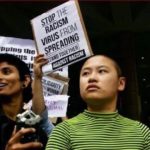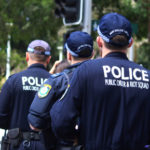COVID-19: Australia Joins Calls for International Investigation

As COVID-19 continues to run rampant around the globe, and governments everywhere enforce lockdowns and self-distancing measures which will plunge the world into economic recession, Australia has joined calls for an international investigation into exactly where and how the virus began, with a view to steps being taken to reduce the prospects of it occurring again.
Finding someone, something to blame
The USA has also been vocal. More than a month ago, the USA – undoubtedly COVID-19’s greatest victim so far – launched accusations of a cover-up at China. More recently, the US has also accused the World Health Organisation (WHO) of not scrutinising China’s initial virus reporting more thoroughly. Over the past weekend Donald Trump went one step further, suggesting that China should face consequences if it was ‘knowingly responsible’ for the pandemic.
While some commentators suggest that the US’s predicament is the fault of its own government for not taking more severe measures to combat the spread of the virus sooner, China hasn’t taken the insults lying down either.
A senior Chinese government official tweeted recently, that the virus could have actually started in the US and been brought into Wuhan in October 2019 when hundreds of athletes from the US military visited the province for the Military World Games.
When people’s livelihoods are threatened, it’s basic human nature to find someone, or something to blame. And, as governments start to move past initial panic, they are now demanding answers – about how this chaos all began.
China’s health authorities have been under increasing pressure, particularly given that by comparison to many other countries, China’s suffering was relatively short and swift – a fact that Chinese officials have attributed to the strict and early closure of Wuhan before the virus had a chance to spread too far.
China’s revised COVID-19 health figures
But only last week China revised its original COVID-19 figures – and they’ve risen by as much as 50%. City officials increased the death toll by 1,290, to 3,869. Wuhan has also increased the number of confirmed cases by 325 to 50,333.
Although China has provided reasons for the dramatic upswing, countries around the world are increasingly skeptical, largely because as a communist regime, any information given to the Chinese people, and the world at large, is tightly controlled by the Chinese government, run out of a well-oiled propaganda machine. Whistleblowers are severely punished. Transparency is not exactly one of the government’s hallmark traits.
Nevertheless there are calls from the US and now Australia, proposing an independent review of the Coronavirus. Officials in Canberra suggest that the review should not be undertaken by WHO because some of its response to the Coronavirus outbreak was ‘not helpful’.
And WHO has weathered its fair share of criticism too over the past few months, but for its part, WHO has defended its actions. The organisation initially raised alarm about the virus at the end of January, and by March 11, 2020 had declared a pandemic.
Any review is likely to be lengthy and costly, and it’s difficult to understand what the ‘blame game’ will actually achieve in the long run, particularly given the fact that China’s co-operation would be paramount.
Of course, reviews of such a nature should also examine and report implementable lessons that might be useful if we find ourselves in a similar situation in future. But in many ways, aiming to understand who, what, and why now, is also a bit like shutting the gate after the horse has already bolted.
Change to life as we know it
The UN has estimated that the cost of the pandemic will run into trillions of dollars – numbers too large for most of us to even fathom. And, around the world, life as we know it has changed, perhaps irrevocably.
Here, on March 22, official lockdowns began with the shutting of pubs and clubs and restaurants, followed swiftly by other ‘non-essential’ businesses. By the end of March we were all being told to #stayhome, and at the same time the Prime Minister shut down Federal Parliament. The New South Wales government followed suit shortly after.
Courts are only dealing with the most urgent and serious cases, and have implemented new measures, with an emphasis on emails and text messaging to avoid the need for personal appearances.
Within days, millions of Australians were without work, starting the slow and painful slide into impending economic recession that is predicted to be worse than the GFC.
Thousands of people have been arrested or issued with hefty fines under an array of new public health laws passed that have changed the social fabric of society as we know it. Police have been given extraordinary powers to enforce these.
Scott Morrison is also planning to introduce a new mobile tracking app to trace people infected with COVID-19 and detect anyone – even people they don’t know – that they’ve come into contact with. So far, he has not ruled out making it mandatory, under the proviso that it will be a vital tool in enabling us to keep the virus under control so that we can go ‘back to our lives’.
There will be changes though. It has been reported that consenting to ‘temperature testing’ will be a normal occurrence in the future if you want to participate in any large group gathering, like a music festival, or board a domestic flight, and there’s also been some talk of ‘proof of immunity’ certificates being a requirement too. Compulsory vaccination, if and when the vaccine is developed, has also been mooted.
Exactly what an international investigation is likely to achieve, remains to be seen For the most part right now, most Australians are keen to simply see life return to some sense of normalcy. But there are no signs of that happening any time soon.
There are now more than 6,600 cases of the Coronavirus in Australia and 70 people have died while infected with the virus. While health experts say that we are getting the spread under control, there is no talk of relaxing the current pandemic control measures which will most likely remain in place until the end of June.







